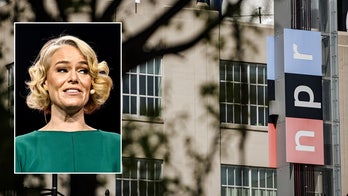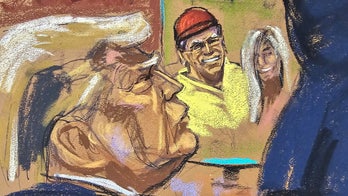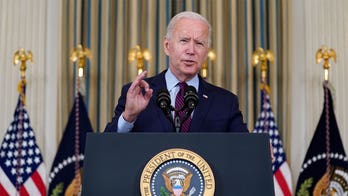DES MOINES, Iowa – "But with the voters' decision tonight in Iowa, I decided to return to Texas -- assess the results of tonight's caucus, determine whether there is a path forward for myself in this race."
-- Texas Gov. Rick Perry in a speech to Iowa supporters after his fifth-place finish.
Iowa did its job again.
While Hawkeye State caucus-goers have a middling record when it comes to picking their parties' nominees, they are wickedly effective at deciding who won't be.
A fickle Republican electorate, both here and nationally, had fretted over its choices for eight months -- inflating bubbles and then popping them. Dissatisfaction with their choices, a sense of urgency about the need to defeat President Obama and some long-unresolved ideological battles drove this Republican indecision and led to an unprecedented three consecutive booms and busts.
But Iowans have decided Texas Gov. Rick Perry and Minnesota Rep. Michele Bachmann won't be moving on to the next round.
Just three months ago, the list of remaining contenders would have sounded absurd. Mitt Romney is no surprise and neither is Ron Paul, who will be pushing his way into the conversation all the way until the Aug. 27 Republican convention.
But how amazing that former Pennsylvania Sen. Rick Santorum and former House Speaker Newt Gingrich, two seeming remnants of a bygone political era who were dragging along in the single digits at the beginning of October, would end up as the remaining combatants in the GOP's primary within a primary to be the "Not Romney" candidate.
It will be up to New Hampshire voters on Tuesday to decide the fate of the very curious campaign of former Utah Gov. Jon Huntsman. Huntsman isn't running as the opposite of Romney like Santorum and Gingrich; he is seeking to be some kind of Romney replacement, a new and improved model. He shunned Iowans and has gone all in on New Hampshire.
Huntsman might yet surprise there, as Republicans experience a sense of disbelief at the composition and condition of the field, but that's really just between him and Romney and the good people of the Granite State.
The only fight that really matters inside the GOP is the battle to unite the conservative majority inside the GOP, which is no easy task given the current ill definition of the term. (Consider that Ron Paul and Rick Santorum are both rightly called conservatives but are as ideologically different from each other as they are from Barack Obama).
At the start of October, there were five contenders to be the conservative alternative -- Perry, Bachmann, Gingrich, Santorum and Herman Cain. Cain did himself in, but it was up to Iowans to choose amongst the other four.
Bachmann, who won the Ames straw poll and launched her campaign in the state, and Perry, who spent millions of dollars here and made a direct appeal to the cultural conservatives, should have done far better, but Iowans said no.
Republicans, incidentally, owe a debt of gratitude to Perry. Rather than taking his remaining funds right down to South Carolina and trying to lock up his share of the electorate, he's tipping his hat and heading back to Texas. He's going to allow the discussion to move on without him. (There is no such thing as a reassessment in presidential politics, just a little period of limbo that allows candidates to bow out on their terms and their turf.)
Bachmann may decide to go -- with her limited resources and low numbers, the most she could hope for would be the chance to explode the hopes of yet another potential challenger to Romney in a debate. There's no joy in that.
Iowa Republicans did their work not a moment too soon, either.
President Obama is campaigning in the Cleveland suburbs today, fresh off his Hawaiian vacation and victory in the fight with the House GOP over payroll taxes. The sooner Republicans pick a "Not Romney," the sooner the race can move into a more orderly discussion of the issues and the views.
Obama is going to try to score as many points as possible on an untended goal, and the Republicans need to get beyond their self-destruct cycle as quickly as possible in order to stop him. They don't need a nominee right away, but they need to elevate their discussion in order to preserve their brand.




